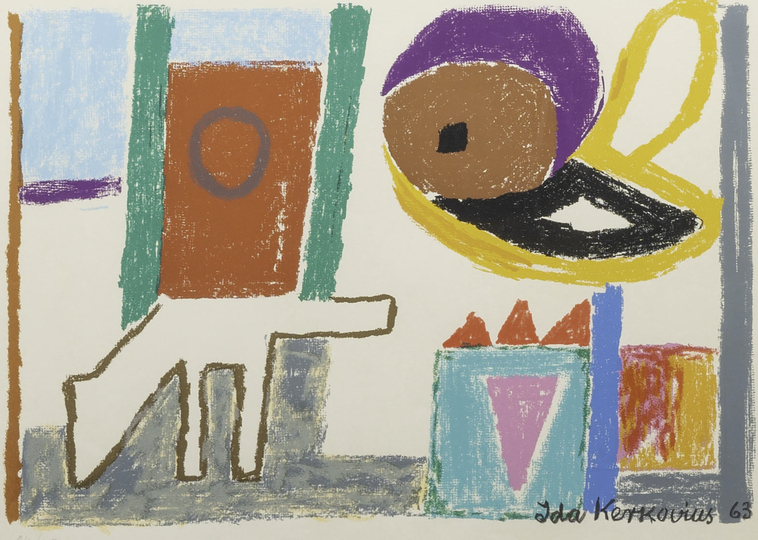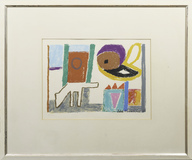Schwebendes und Tier
Ida Kerkovius (Riga 1879 - Stuttgart 1970)

Lot-No. 344
Proceeds : 500 €
1963. Silk screen in colours. 30,5 x 42,5 cm. Lo. ri. sign. and dat. Ida Kerkovius 63, matted and framed under glass, uninspected out of frame. - German paintress a. textile designer. After being trained as drawing teacher in Riga she travelled Italy and became for five months a pupil of A. Hölzel whose style influenced her very much. After a journey to Italy she returned to Germany as master student of Hölzel in 1908. She exhibited at H. Walden's gallery in Berlin as well as in Freiburg together with W. Baumeister, O. Schlemmer and J. Itten. 1920-23 she took weaving lessons at the Weimar Bauhaus but also took courses with P. Klee and J. Itten. In 1930 she had her first great solo exhibition in Stuttgart. Allthough her work was defamed by the Nazis a. the major part of her ouevre burnt during the war she was able to live up to earlier successes after the war. In 1954 she was decorated with the Bundesverdienstkreuz, in 1958 she was made professor in Stuttgart. Lit.: Thieme-Becker, Vollmer.
Ida Kerkovius: Schwebendes und Tier
Ida Kerkovius (Riga 1879 - Stuttgart 1970)
Schwebendes und Tier
Lot-No. 344
Proceeds : 500 €
1963. Silk screen in colours. 30,5 x 42,5 cm. Lo. ri. sign. and dat. Ida Kerkovius 63, matted and framed under glass, uninspected out of frame. - German paintress a. textile designer. After being trained as drawing teacher in Riga she travelled Italy and became for five months a pupil of A. Hölzel whose style influenced her very much. After a journey to Italy she returned to Germany as master student of Hölzel in 1908. She exhibited at H. Walden's gallery in Berlin as well as in Freiburg together with W. Baumeister, O. Schlemmer and J. Itten. 1920-23 she took weaving lessons at the Weimar Bauhaus but also took courses with P. Klee and J. Itten. In 1930 she had her first great solo exhibition in Stuttgart. Allthough her work was defamed by the Nazis a. the major part of her ouevre burnt during the war she was able to live up to earlier successes after the war. In 1954 she was decorated with the Bundesverdienstkreuz, in 1958 she was made professor in Stuttgart. Lit.: Thieme-Becker, Vollmer.




